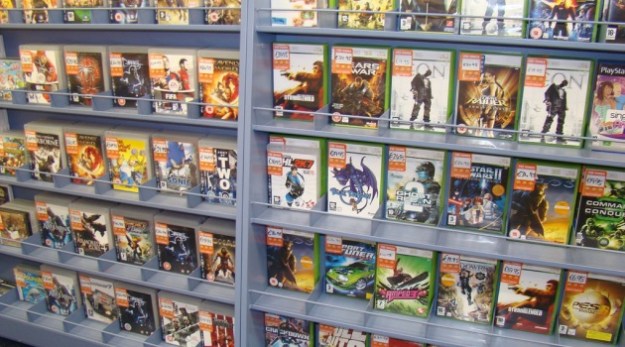
August was not a good month for games. According to NPD Group (via Edge), retail video game sales for the month were down 23 percent compared to last year, ending the month at $669.9 million. Hardware sales lost 12 percent of their steam during the period, but software sales took the blunt of the blow with a 37 percent decline, pulling in 285.9 million.
There are many possible reasons why sales are low. For starters, there weren’t a lot of major releases in August. It was a quiet month. Deus Ex: Human Revolution (review) was released in the final days of August and took the top spot almost instantly. Most of the top 10 is filled with older titles like Just Dance, Legend of Zelda: Ocarina of Time, Zumba Fitness, Cars 2, and Call of Duty: Black Ops. CVG has a complete chart of best sellers for the month.
A lack of games aside, it’s likely that the current generation of consoles–the Wii, Xbox 360, and PlayStation 3–are simply losing steam. Video game consoles traditionally have about a five year lifecycle and sales tend to drop off as rumblings of new consoles begin. Nintendo has already announced the Wii U and its likely that Microsoft and Sony will be pressured into announcing new versions of their systems in the near future as well. Of course, the poor U.S. economy is likely a partial culprit as well as is the rise in cheap online, tablet, and smartphone gaming.
Surprisingly, the only area to show any growth was handheld gaming, thanks to impressive sales of the Nintendo 3DS, which was buoyed by a massive price cut on August 12. In the 19 days after the price cut, Nintendo says sales grew 260 percent from the same 19 day period in July (an odd figure to calculate, we admit). More than 235,000 3DS systems were sold during the month. The cut from $250 to $170 was spurred by low sales of the system since its March debut. It will be interesting to see if the 3DS continues to carry its momentum into the holidays or if the price cut’s sales effect will evaporate in the weeks ahead.
Many analysts are still optimistic about the last four months of the year. The holiday season typically makes up about half of all video game sales for the year, which gives the industry a chance to make up some of the many sales it has lost so far.


